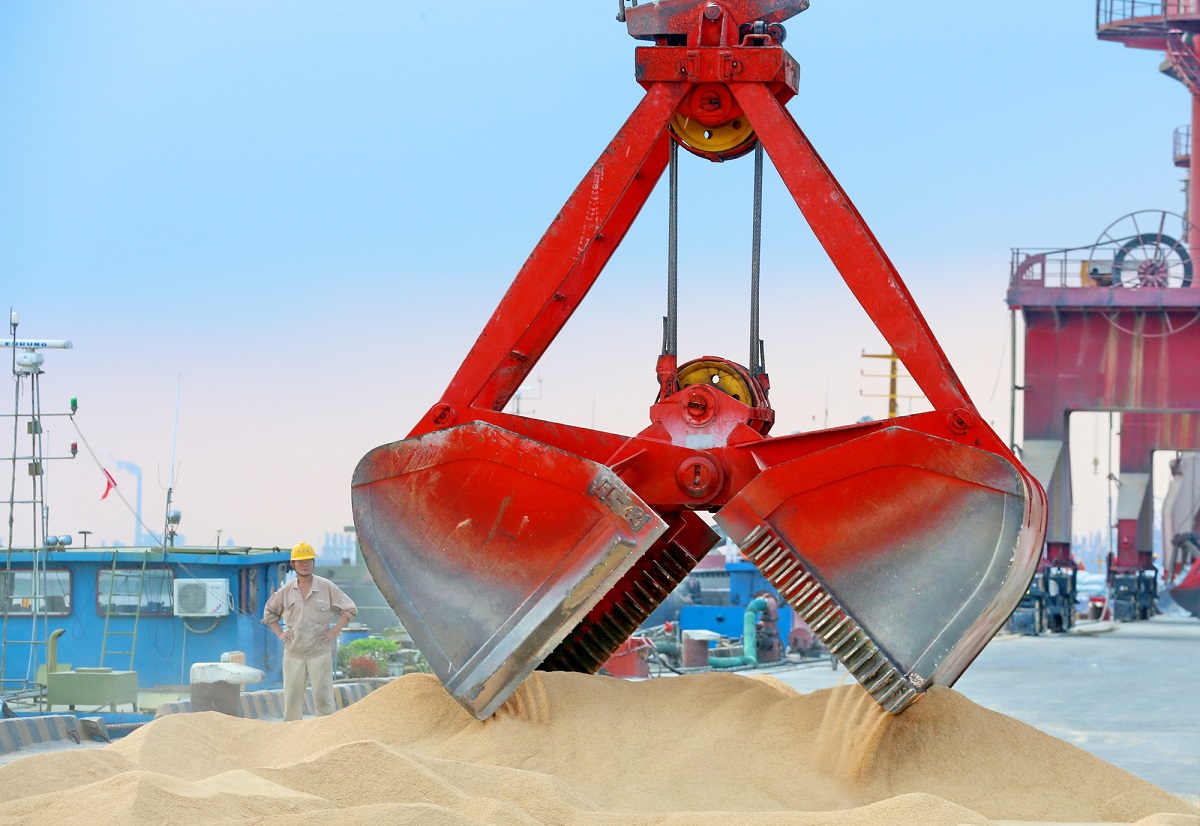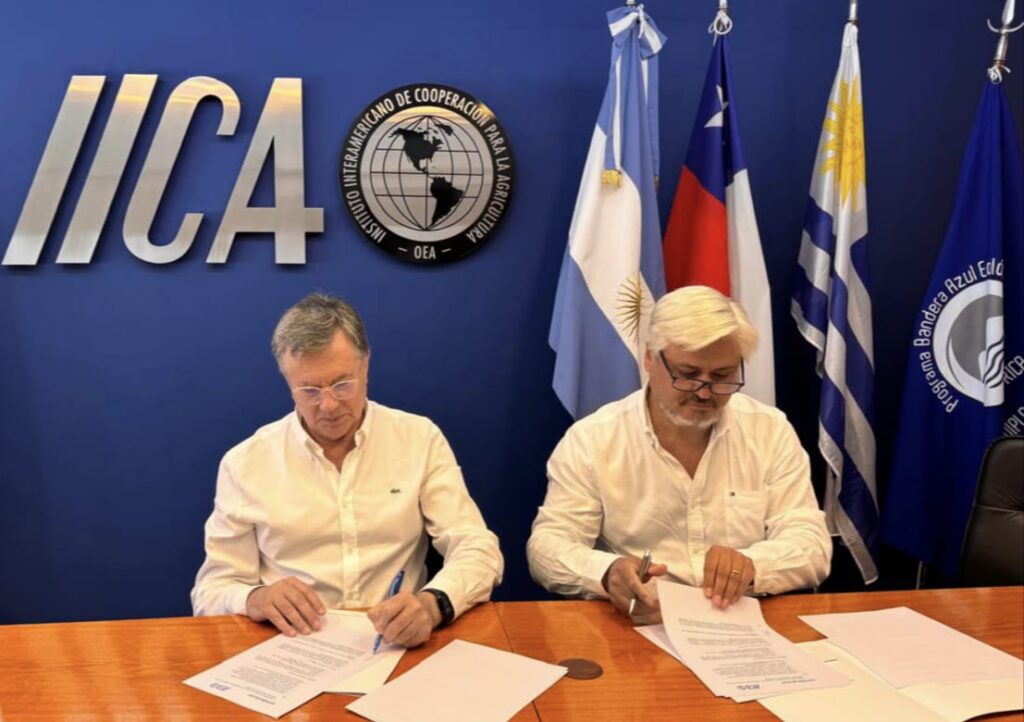Los datos se refieren a abril y a mayo en forma preliminar, y confirman que el agro será uno de los motores de la recuperación económica post pandemia.

San José, 10 de julio de 2020 (IICA). Las exportaciones agrícolas de 14 países de América Latina y el Caribe* aumentaron en dólares un 8.5% interanual en abril, en un marco de una profunda caída de 29,9% de las ventas externas totales, mientras que datos preliminares de mayo ratifican esta tendencia, indicando que la producción y el comercio de bienes agropecuarios serán uno de los motores de la recuperación económica en la región.
Los datos fueron analizados por el especialista del Centro de Análisis Estratégico para la Agricultura (CAESPA) del Instituto Interamericano de Cooperación para la Agricultura (IICA), Joaquín Arias, y se basan en los indicadores del Monitor de Datos Comerciales (www.tradedatamonitor.com). Los países considerados fueron Argentina, Belice, Bolivia, Brasil, Chile, Colombia, Costa Rica, Ecuador, El Salvador, Guatemala, México, Paraguay, Perú y Uruguay.
En mayo, de acuerdo a preliminares disponibles de siete países, la tendencia respecto al mes previo se mantuvo: las exportaciones agrícolas aumentaron un 11.1%, mientras que la del total de bienes disminuyó un 15.7%.
Los países que registraron un mayor aumento en sus exportaciones agrícolas en abril fueron Brasil (28.9%), Costa Rica (8.2%), Argentina (4.95%), Bolivia (4.9%) y Guatemala (4.7%). Por otro lado, las exportaciones agrícolas de Perú y Uruguay bajaron significativamente: 41.7% y 16.8%, respectivamente.
Los productos cuyas exportaciones registraron mayor incremento en abril fueron soja, azúcar, carne bovina y de cerdo en los países del Mercosur, que se beneficiaron por la demanda de China (ver artículo).
En Centroamérica, las exportaciones de café, plátanos y preparaciones alimenticias también aumentaron. Desde los países andinos se incrementaron los envíos de aceite de palma, extractos y esencias de café, té y hierbas, cítricos frescos y secos y hortalizas.
“En mayo, a pesar del avance de la pandemia de Covid-19, el crecimiento de las exportaciones agrícolas fue positivo para Brasil, Costa Rica, Paraguay y Argentina; y negativo para El Salvador, Chile y Guatemala”, comparó Arias.
Ese mes, las exportaciones agrícolas de Brasil crecieron un 22.6% interanual, mientras que las exportaciones totales bajaron un 14,2%.
En el otro extremo, las exportaciones agrícolas de El Salvador cayeron un 38.8%, mientras que, en total, considerando todos los bienes, la caída fue del 60.5%. Paraguay, por otro lado, aumentó las exportaciones agrícolas en un 6.4%, mientras que las ventas totales cayeron un 1.7%.
Brasil es el único país de la región que ya presentó los datos de la balanza comercial de junio, cuando las exportaciones agrícolas aumentaron un 32.8% interanual.
En abril, las exportaciones mundiales de bienes cayeron un 21.4% (datos de 72 países) ante el mismo mes de 2019, mientras que las exportaciones de productos agrícolas cayeron un 1.3%. “El desempeño de las exportaciones de América Latina y el Caribe se destaca en comparación con el resto del mundo”, concluyó Arias.
Para Daniel Rodriguez, gerente del Programa de Comercio Internacional e Integración Regional del IICA, el comportamiento de las exportaciones agrícolas en los primeros meses de la pandemia confirma el importante rol que juega América Latina y Caribe en la disponibilidad de alimentos inocuos y nutritivos, no sólo para la región, sino a nivel global.
“Ubican al sector agrícola en una posición privilegiada en la generación de divisas para financiar los proyectos de recuperación socioeconómica, así como en la promoción de ingresos para los productores y empresas, y de empleos para los pobladores rurales y urbanos, favoreciendo el acceso a los alimentos”, dijo.
La información completa está presentada en el blog del IICA “Sembrando hoy para la agricultura del futuro”, e incluye gráficos interactivos según el país de interés.
El IICA lanzó el blog con el objetivo de monitorear el avance de variables claves para el desarrollo de la agricultura durante la pandemia y ofrecer puntos de vista y perspectivas de especialistas del Instituto y de instituciones asociadas sobre temas del sector agrícola relacionados con la emergencia de salud causada por Covid-19.
Enlace a la gráfica interactiva:
https://blog.iica.int/index.
Siga el blog de IICA:
Más información:
Joaquín Arias, especialista técnico internacional del Centro de Análisis Estratégico para la Agricultura (CAESPA)
joaquin.arias@iica.int










